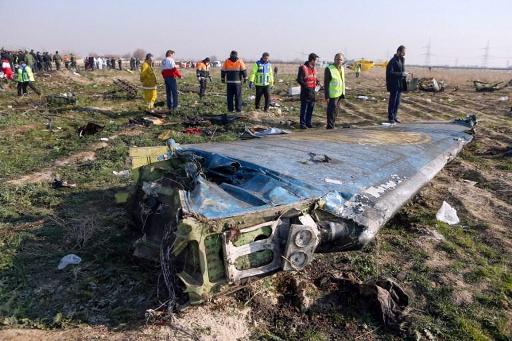After three days of denial, Iran admitted on Saturday its responsibility for the downing of the Ukrainian passenger plane after it had taken off from Tehran airport. Today EU repeated its calls on Iran to ensure an independent and credible investigation in line with international standards.
Investigators from Boeing, the American aircraft manufacturer, Ukraine and other countries whose nationals died in the crash, have reportedly been invited to visit the accident site. To what extent they will be actively involved in the investigation and have access to all data is still unclear.
The Iranian authorities have announced that the plane was accidentally shot down by an air defence operator at a military base outside Tehran. Iran will have to explain how a mistake was possible considering that the plane had got clearance to take off from Tehran airport and other civilian planes had left safely earlier.
The black box has reportedly been found. To guarantee credibility, international investigators would need to have access to the box and all data recordings.
In the case of a Polish aircraft which crashed outside Smolensk, Russia, in April 2010, the wreckage and the black box were never returned to Poland. In 2018, a committee of the parliamentary assembly of the Council of Europe called on Russia to return them.
British air crash expert Frank Taylor carried out a review of the investigations of the Smolensk crash. He stated then that the purposes of an accident investigation are to establish the causes of the accident and of the injuries to those on board so that safety recommendations may be made both to help prevent future accidents and to improve the chances of survival of crew and passengers.
Asked by The Brussels Times what Iran should do to ensure a credible investigation, he replied that the data recorders could be analysed by other countries, assuming that the Iranians do not have the facilities to analyse them - and if they have, others might not trust them.
“One can understand that they don’t wish to send them to the US,” he said. “The Ukrainians may have the facilities but, since many Canadians were onboard and Canada has excellent facilities, that would be a good option. Otherwise any state not directly involved, such as France or the UK, could be asked.”
At today’s press briefing in Brussels (13 January), the lead spokesperson for EU foreign affairs said EU had received assurances about the investigation from Iran and specifically from its foreign minister Zarif. He repeated that EU expects Iran to cooperate fully and to undertake a comprehensive and independent investigation in line with international standards.
The EU Aviation Safety Agency (EASA) has re-evaluated the risk of commercial airliners flying over Iran. In light of available information, the recommendation in the current security situation is that overflights of Iran should be avoided at all altitudes until further notice, as a precautionary measure.
The late Iranian recognition of its responsibility for the downing of the Ukrainian plane has resulted in protests in both Iran and abroad and damaged the credibility of the regime. EU wants to preserve the nuclear deal which in its current form includes sunset clauses on Iran’s commitments. After what has happened, EU will have to ask itself if Iran can be trusted without revisiting these clauses.
M. Apelblat
The Brussels Times

